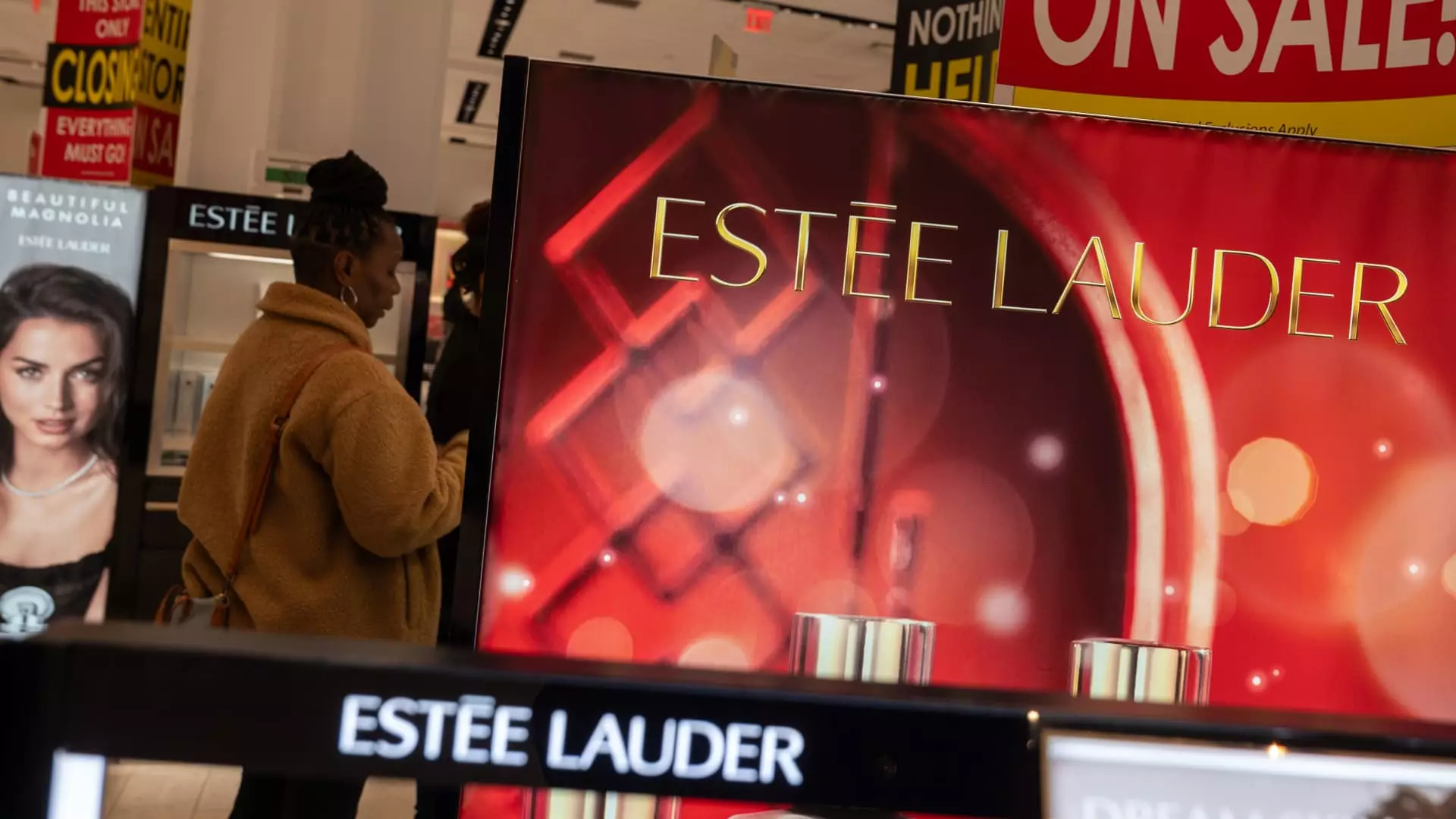This week has proven tumultuous for several prominent companies within the beauty sector, as multiple brands, including E.l.f. Beauty and Estée Lauder, reported disappointing earnings and reduced their future financial outlooks. E.l.f. experienced a staggering decline, losing nearly 29% of its stock value—the steepest drop since August 2018. Despite posting better-than-expected revenue in its fiscal third quarter, the company’s adjusted earnings per share failed to meet expectations, precipitating a revised sales forecast that decreased from a prior estimate of $1.32 billion to a more pessimistic projection of between $1.3 billion and $1.31 billion.
CEO Tarang Amin acknowledged that the overall cosmetics market had suffered a setback, attributing a 5% decline noted in January to lingering effects from aggressive post-holiday discounting and diminishing consumer interest in beauty products online. Following the disappointing announcements, several financial analysts from prestigious firms such as Morgan Stanley, D.A. Davidson, and UBS promptly downgraded E.l.f.’s stock recommendation to neutral. This collective sentiment from market experts underscores a growing apprehension regarding the sustainability of recovery in the beauty market.
Estée Lauder’s Woes: Job Cuts and Eroding Demand
Additionally, Estée Lauder faced its own share of calamity, with shares plummeting 22% over the course of the week—its most significant loss since November. The company announced plans to reduce its workforce by approximately 5,800 to 7,000 positions by the close of fiscal 2026, resulting from a softening demand in the travel retail sector, especially in Asia. Despite outperforming revenue and earnings expectations in its second quarter, the company couldn’t escape the repercussions of these developments, as CEO Stéphane de La Faverie expressed concerns about the firm’s loss of agility and missed opportunities for growth.
Ulta and Coty: A Broader Industry Struggle
Moreover, Ulta Beauty and Coty are not immune to the market volatility, as they experienced declines of 9% and nearly 8%, respectively, marking Ulta’s worst week since April. Ulta’s retail performance specifically came under scrutiny during E.l.f.’s earnings call, as Amin hinted at indications of “softness” in sales through this prominent retailer. The beauty sector currently grapples with an array of challenges, including external pressures from tariffs that threaten profit margins.
The situation escalated earlier this week with China’s decision to impose tariffs on selected U.S. imports, a move likely in retaliation to the Trump administration’s planned additional tariffs on Chinese goods. Given that E.l.f. manufactures around 80% of its items in China, the implications of these tariffs are particularly concerning. Amin expressed some relief that the tariffs set forth were lower than previously considered potential levies, but the overarching uncertainty surrounding international trade will likely continue to hinder growth prospects in the beauty industry.
The recent turmoil in the beauty sector is a complex interplay of disappointing earnings reports, careful market analysis, and external economic pressures that challenge the future of several major brands.


Leave a Reply